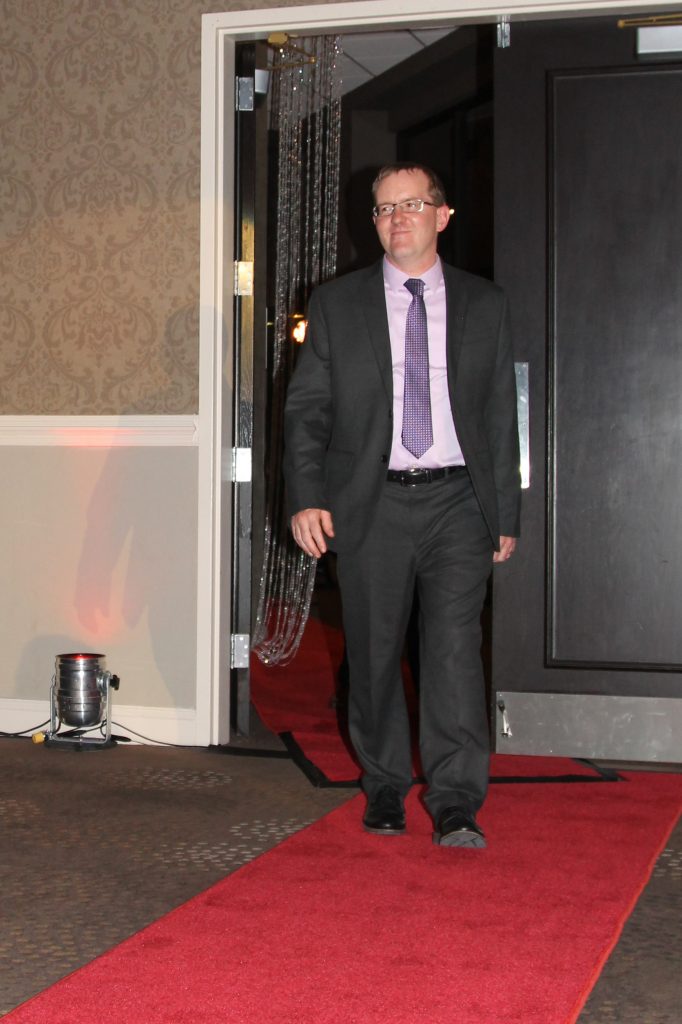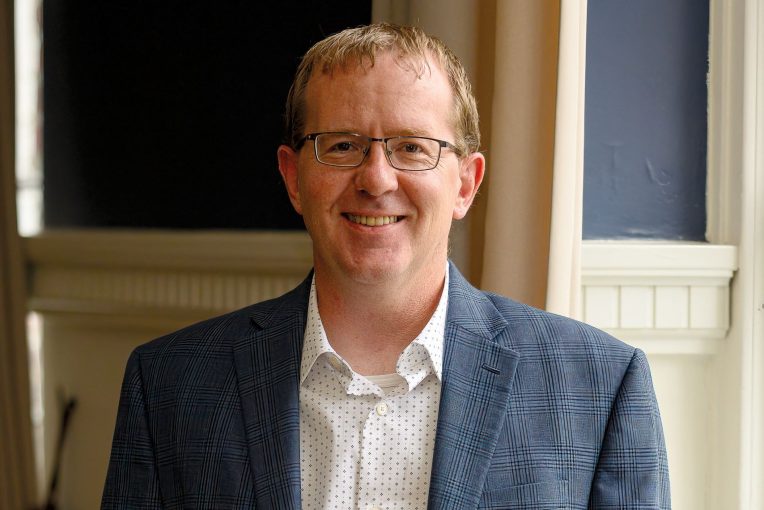Growing up with little money on the outskirts of a small town, Todd Dugan ’97, M.S. ’06, recalls the week his family was without heat in the middle of winter. They couldn’t call the local gas provider because one didn’t exist. They simply didn’t service their property. Instead, the Dugans rationed their own 500-pound propane tank as best they could.
“I did not think anything of it at the time. My sister and I bundled up in winter coats before bed because that’s what mom said to do. All we thought was, ‘Oh, the house is chilly,’” Dugan said.

“I think it’s important, and I think we’ve got a lot of work to do. It is not a secret; the research says that rural communities feel neglected.”
Todd Dugan
As a teacher, principal, and now superintendent of Bunker Hill (a district of just 584 students), he’s recognized new inequities facing his students and families.
And at no time was the divide between rural school experiences and the rest of the country more pronounced than during the COVID-19 pandemic.
“Suburban and urban districts already had fiber internet service installed door to door or private LTE networks of cell towers with Wi Fi signals connecting whole cities,” he said.
“We were not that fortunate. There were many families and outlying areas without a single service provider.”
Bringing attention and education to the issue is at the heart of his research and the presentation he’ll deliver at Thursday’s Three Minute Thesis competition (February 29). The event will begin at 6 p.m. in the Normal Theatre.
Dugan is a doctoral student finishing up his degree in the Department of Educational Administration and Foundations’ (EAF) P-12 Administration Ed.D. program at Illinois State.
“We’re really proud of Todd for his persistence and determination, no matter how many challenges he’s faced on his road to finishing his degree,” said EAF Chair Dr. Rudo Tsemunhu. “His topic is important, and he really has shown a dedication to equity and social justice. The people in his community are facing hardships, and they are trying to get ahead. He wants to help them. And that is what this EAF department is all about—students looking at their own communities to make a difference.”
A personal plea
Because of Dugan’s multiple vantages points on the subject, he used an autoethnographic approach to the research. The method analyzes personal experience to uncover cultural phenomena. Specifically, he’s looking at issues of readiness, equity, and social identity.
There are many moments he can incorporate from his time in school to his days leading them.
“When I was in high school, my guidance counselor told me not to ‘mess around with college’ and to instead stay at Eagles, which was a grocery store located where Illinois State’s Alumni Center now stands,” he said. “He told me, ‘Maybe you’ll get moved into the meat cutters union.’ He told me that because of my background, that would be a good job for me.”
Therapy session
Dugan also interviewed other rural superintendents to expand his research.
“When I was done interviewing the first superintendent, they told me that the experience felt like a therapy session. They even said ‘warn the next two people about these questions.’ Those three issues: social identity, lack of readiness, and equity really strike a nerve for rural districts, especially in the context of the pandemic. We all went through painful times.”
In fact, one of his interviewees mention an alarming outburst at a board meeting during the pandemic.
“The attendee said, out loud, that ‘I’d rather see this school in ashes than to see you sit there with your pockets full while you suffocate our children with diapers on their faces.’ That went viral on the national level. To put it plainly, that fell into the social identity piece.”
As Dugan winds down his research, he comments that he was passionate about shining a light on an issue underdeveloped in PreK-12 school research. It’s one that’s personal to him, and he’s excited to share his voice, and the voices of him community, with Redbirds. Win or lose, it’s an opportunity he won’t take for granted.
“I think it’s important, and I think we’ve got a lot of work to do. It is not a secret; the research says that rural communities feel neglected,” said Dugan.

